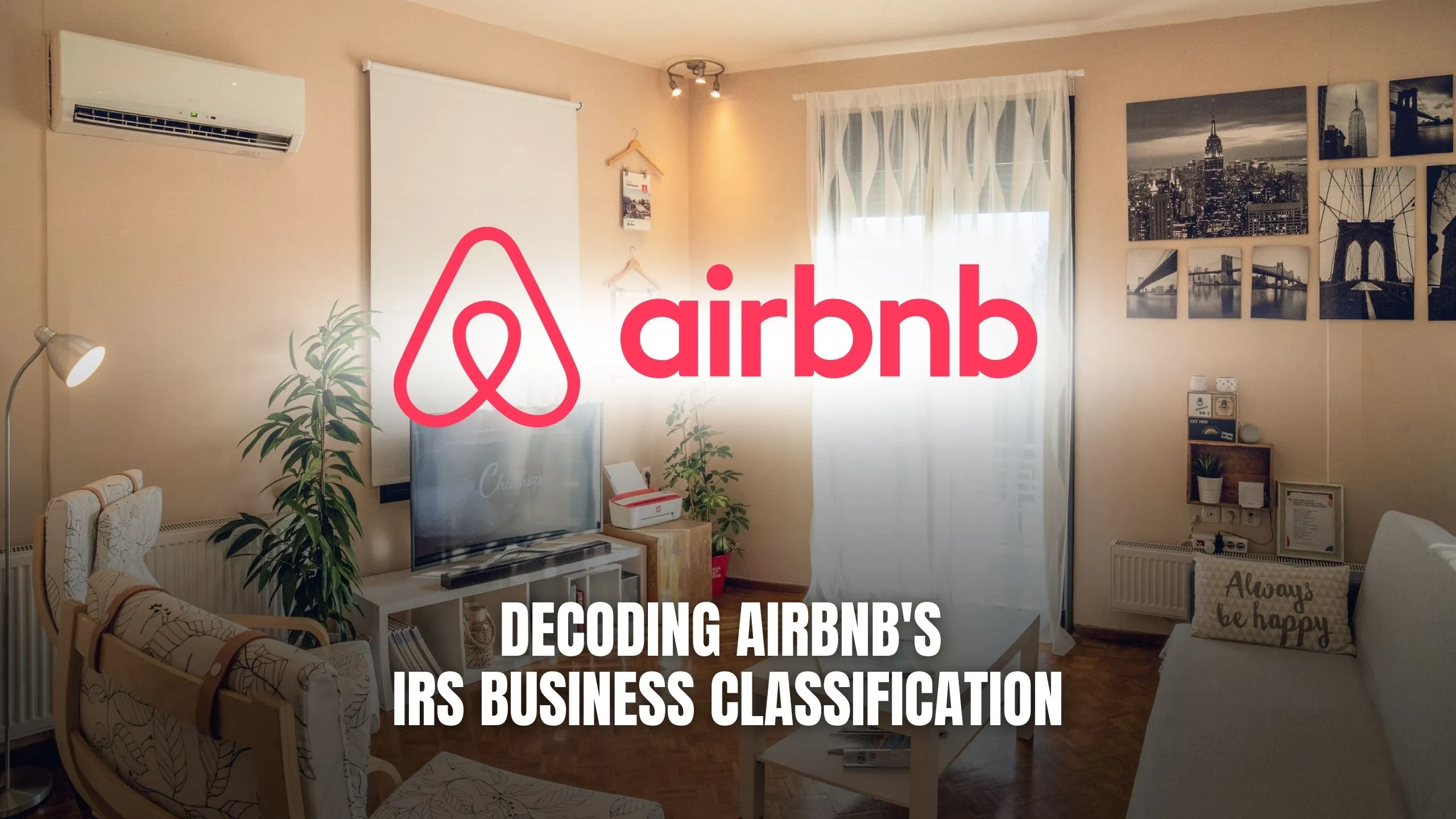Decoding Airbnb’s IRS Business Classification
- Expense Management Software Credit Cards Investing Business Solutions


Decoding Airbnb’s IRS Business Classification
Airbnb’s business classification with the IRS has been a topic of interest for many, especially considering its unique business model. Understanding how the IRS categorizes Airbnb is crucial for both hosts and guests. Let’s delve into this classification and its implications.
1. Passive Activity or Active Trade or Business?
One of the key questions regarding Airbnb’s IRS classification revolves around whether it’s considered a passive activity or an active trade or business. The distinction is significant for tax purposes, as it determines the eligibility for certain tax deductions and credits. While Airbnb hosts may view their rental activities as passive, the IRS may classify them differently based on various factors such as the level of involvement and frequency of rental.
2. Rental Real Estate or Hotel Business?
Another aspect of Airbnb’s IRS classification pertains to whether it’s categorized as rental real estate or a hotel business. This classification affects how income generated from Airbnb rentals is taxed and what expenses can be deducted. The IRS considers factors like the type of property, services provided, and the frequency of rentals when making this determination.
3. Tax Reporting Requirements
Understanding Airbnb’s IRS classification is crucial for hosts to comply with tax reporting requirements accurately. Depending on how Airbnb is classified, hosts may need to report rental income on different tax forms and may be subject to additional tax obligations such as self-employment taxes or hotel occupancy taxes.
4. Potential Tax Implications for Guests
While much of the focus is on Airbnb hosts, guests should also be aware of potential tax implications related to their stays. Depending on the classification of Airbnb by the IRS, guests may be subject to additional taxes or fees imposed by local jurisdictions, impacting the overall cost of their accommodations.
Recommended SaaS Products:
- TaxJar: Simplify your tax compliance with TaxJar’s automated sales tax reporting and filing solutions, tailored for Airbnb hosts and businesses alike.
- QuickBooks: Manage your Airbnb rental income and expenses seamlessly with QuickBooks’ accounting software, designed to streamline financial tracking and reporting.
- TurboTax: Prepare and file your taxes with confidence using TurboTax’s user-friendly tax preparation software, optimized for Airbnb hosts and individuals with rental income.
- Xero: Stay on top of your Airbnb finances with Xero’s cloud-based accounting software, offering intuitive invoicing, expense tracking, and reporting features.
- FreshBooks: Simplify your Airbnb accounting tasks with FreshBooks’ easy-to-use invoicing and expense management platform, designed to save you time and streamline your financial workflows.
Conclusion
Deciphering Airbnb’s IRS business classification is essential for hosts and guests alike to navigate tax obligations effectively. Whether Airbnb is considered a passive activity or an active trade or business, and whether it’s categorized as rental real estate or a hotel business, can have significant implications for tax reporting and compliance.
Simplify Your Tax Compliance with Subscribed.fyi!
Ready to simplify your tax compliance for your Airbnb rental activities? Subscribed.fyi offers exclusive deals on essential SaaS tools, including tax preparation software and financial management platforms. Sign up for free today to unlock secret deals and save big on tools that will streamline your tax processes and help you stay compliant. Empower yourself with the tools you need to decode Airbnb’s IRS classification and manage your tax obligations effectively.
Relevant Links:








